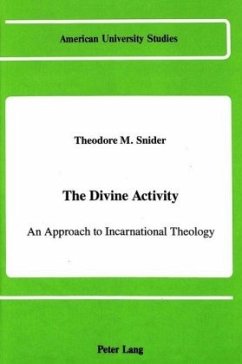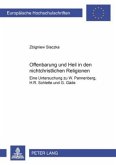Using the methodology of process theology, especially the works of Cobb, Williams, and Pittenger, this book defines incarnation as the continuous self-revealing activity of God. Incarnation is presented as a model for spirituality, interpersonal relations, and social change. The final chapters apply this model to the issue of pluralism and challenge the exclusiveness of Christianity.
"I find Dr. Snider's approach to be very stimulating and relevant for an understanding of faith and interfaith dialogue within a process perspective. He takes 'incarnation' seriously and relates it to our understandings of God, persons, and world in all of our many interrelationships. I look forward to seeing this very fine book in print soon." (Geoffrey L. Story, Jr., Illinois Wesleyan University)
"..., Snider's 'The Divine Activity' creatively appropriates process insights and brings them into conversation with a range of pressing contemporary issues. It makes an innovating and helpful contribution to process theology." (Clark Williamson, Christian Theological Seminary) "The reader of this work should come away with a deep sense of appreciation for the expanse and depth with which the author has undertaken to provide a systematic restatement of the historically central doctrine of the incarnation. The author is to be admired for the succinct manner in which he has brought together a transformed understanding of the doctrine of the incarnation within the context of process thought. ...this reviewer applauds his work as a significant effort to bring together the full implications of process theology for contemporary review. His work is well worth the reading." (Robert McBride, American Journal of Theology & Philosophy)
"..., Snider's 'The Divine Activity' creatively appropriates process insights and brings them into conversation with a range of pressing contemporary issues. It makes an innovating and helpful contribution to process theology." (Clark Williamson, Christian Theological Seminary) "The reader of this work should come away with a deep sense of appreciation for the expanse and depth with which the author has undertaken to provide a systematic restatement of the historically central doctrine of the incarnation. The author is to be admired for the succinct manner in which he has brought together a transformed understanding of the doctrine of the incarnation within the context of process thought. ...this reviewer applauds his work as a significant effort to bring together the full implications of process theology for contemporary review. His work is well worth the reading." (Robert McBride, American Journal of Theology & Philosophy)


